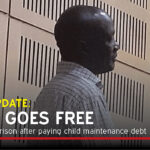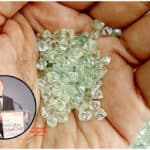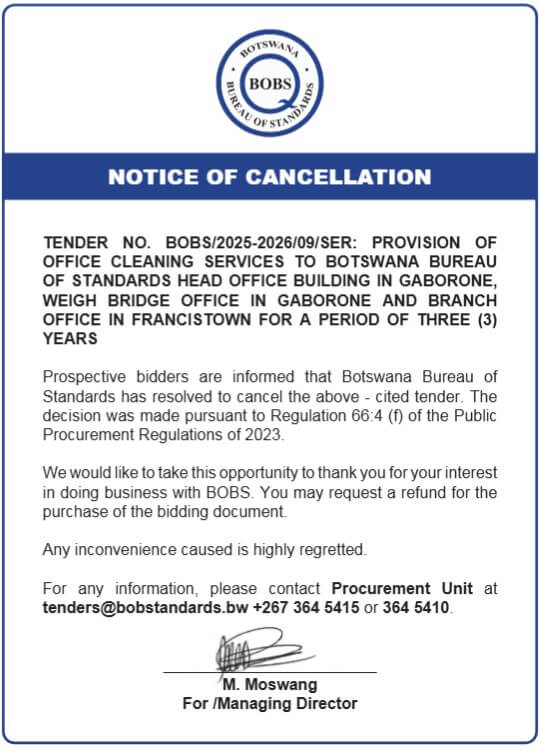After struggling with low production of citrus fruits for the longest time, the Selibe Phikwe Citrus Project(SPC) has shown promise for bountiful harvesst with a yeiled of 27 percent of the projected production.
This significant step towards achieving food security, self sufficiency and an export led economy status has come at a critical stage when Botswana has to intensitfy efforts to diversify its economy from being reliant on mining,especially diamonds.
Solely a private sector project worth of P300 million in investment,the citrus project officially started in 2020 on a 1500 hectare land owned by Mmadinare Multi-purpose Cooperative Society .Falling under the horticulture produce which has a demand of 112 metric tonnes, citrus production is at 27 percent, giving out 29 000 tonnes while vegetables account for 67 percent production.
Over the years ,Botswana has been buying the bulk of its citrus fruits from South Africa, having imported 3.4 million kilos of fruits worth of P19.9 million in 2019 as according to Statistics Botswana. The figures gradually grew with the import bill rising to P38 million in 2020 and P44.1 million in 2021. In 2022 there was a slight decline of the imports peaking at P37.3 million before spiking again in 2023 at P39.4 million .
To date 1200 hectares of the land has been developed with 888 hectares used to plant over 800 000 different citrus trees. These amongst others include lemons, valencia, navels, mandarins and oranges for both the local and export markets. With markets in United Arab Emirates, Saudi Arabia and Europe already identified, 70 percent of the produce is outbound while 30 percent will be sold locally for processing and in the SADC region.
Addressing media on Thursday, Minister of Agriculture Fidelis Molao said the project is going to be a game changer in Botswana’s citrus production.
“There are no public funds that were invested in this project and this demonstrates Botswana investor confidence, this is money coming into our economy .Ministry of Lands and Water affairs played an integral role too because we had to get water from Shashe Dam for irrigation of the project .As the trees mature ,production will also increase with lifespan of trees going up to 20 years .Trees were planted at different intervals to allow for maturity at different times and this is an opportunity for agriculture to make money,” said Molao adding that citrus products from Botswana are set to reach the United States of America market in 2025 as they are currently leveraging on diplomatic ties to meet the necessary requirements.
With Botswana managing to meet the market access requirements for countries such as Canada, China, The Philippines, United Arab Emirates and Saudi Arabia, 2400 kilograms of lemons will be dispatched weekly to Middle East while 3600 kilos will be kept for local market for the month of March. From April onwards expectation is that both domestic market and overseas will get 9000kg from the harvest.
Apart from exporting produce, the project provides business opportunities in different value chains which include; manufacturing of juice and packaging materials, transport and logistics, honey production, fertilizer production amongst others.
“Harvest from the citrus project presents massive opportunities for value chain development, to produce juice, gin, jam and all other different products from those fruits not exported. These are opportunities for all Batswana, which can all be explored to ensure that we get real value from the products. Having done our extensive research in value chain, this also presents opportunities for manufacturing of agricultural inputs that go into these processes such as agro-chemicals, and agro–Processing,” said acting minister of Entrepreneurship Molebatsi Molebatsi adding that over the past two years, the project used P11 million worth of fertilizers.
Once fully operational, the project will employ more than 1000 people having employed 400 as of now. Apart from the Selibe Phikwe Citrus project, Botswana currently has 172 citrus growers with over 90 percent of these being small-scale farmers found in areas of Leshibitse, Loologane (Kweneng), Lentsweletau, Tutume, Chobe.














